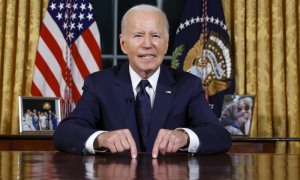ISLAMABAD: Pakistan’s Prime Minister Shehbaz Sharif has constituted a high-level committee to review climate change governance and mechanisms to access climate funds and nominated Climate Change Minister Romina Khursheed Alam and Executive Director Sustainable Development Policy Institute Dr Abid Qayyum Suleri as its members along with other senior members.
The committee will be chaired by the Deputy Chairman Planning Commission comprised of government officials, parliamentarians, civil society and environment NGOs’ representatives, private sector, research institutes, experts and advisors with knowledge of specific issues.
It will give recommendations that involve mainstreaming climate considerations across all government organizations and operations, as well as integrating them into the development agenda and Sustainable Development Goals.
It includes evaluating the effectiveness of existing and proposed institutional mechanisms such as SIFC, National Climate Change Council, proposed Climate Change Authority, National Disaster Risk Management Fund, Climate Change Fund, and coordination with key ministries.
Committee to Review Institutional Mechanisms to Mobilize Climate Finance
The committee would review institutional mechanisms and policies to mobilize climate finance, including climate funds and innovative financial instruments.
It would also asses institutional mechanisms and policies to attract private capital from different sources such as Development Finance Institutions, Pension Funds, Commercial Banks, Insurance Companies, Venture Capital, and Private sector firms. Examining institutional mechanisms and policies to enhance engagement with Multilateral Development Banks to reduce the cost of finance and leverage private sector investment through grants, guarantees, and concessional climate funds will also be recommended by the Committee.
It will make recommendations to strengthen climate governance, access carbon and climate finance, and mobilize the private sector to drive the decarbonization of industry, integrate into green value chains, and boost exports in alignment with evolving global regulatory mechanisms such as carbon border adjustments. The role of academia, media, and research entities in policy advocacy and formulation will also be articulated.

























